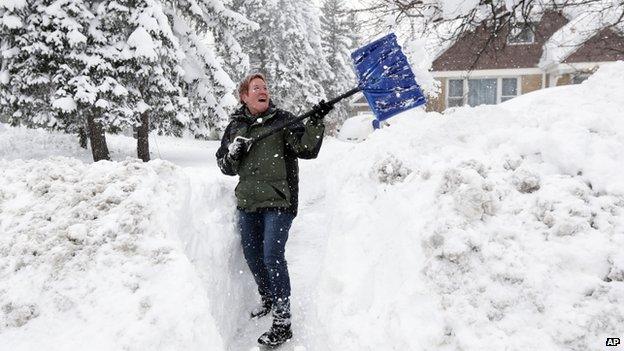East Asia cold snap 'kills 85 in Taiwan'
- Published
Aerial footage showed the extent of the bad weather
A cold snap sweeping across East Asia has killed at least 85 people in Taiwan and stranded 60,000 tourists in South Korea.
Taiwanese media reported deaths from hypothermia and cardiac disease following a sudden drop in temperature over the weekend.
Meanwhile heavy snow forced the closure of the airport on the Korean holiday island of Jeju, cancelling flights.
The cold spell has also hit Hong Kong, southern China and Japan.
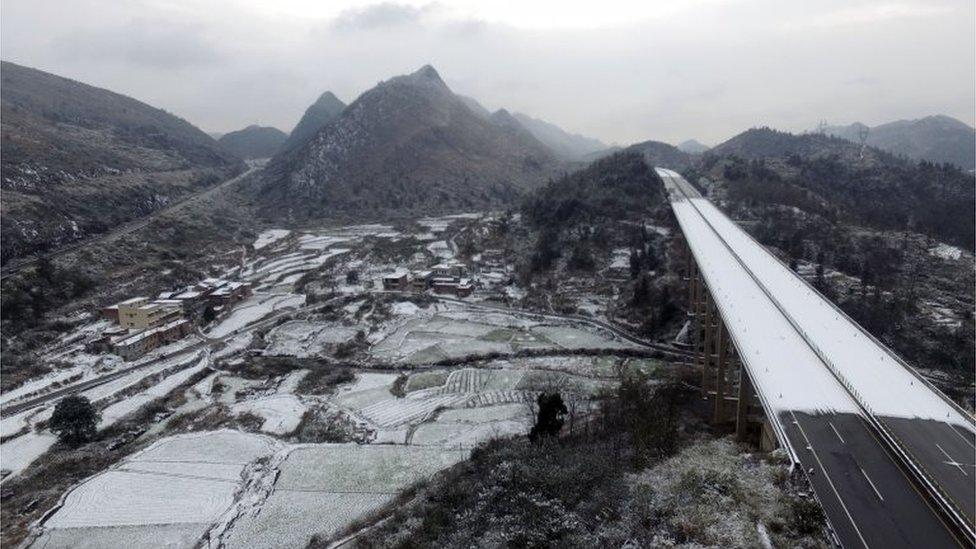
This highway in Guangdong province was closed because of heavy snow
'Sudden drop'
Many of those who died in Taiwan were elderly people living in northern regions such as Taipei and Taoyuan. Those areas accounted for 66 of the deaths.
Another 16 were confirmed dead in the southern city of Kaohsiung.
The temperature in Taipei city fell to a 44-year low of 4C (39F) on Sunday, and many homes in Taiwan lack central heating.
Many victims reportedly had heart trouble and shortness of breath.
"In our experience, it's not the actual temperature but the sudden drop that's too sudden for people's circulatory systems,'' said a city official quoted by AP news agency.

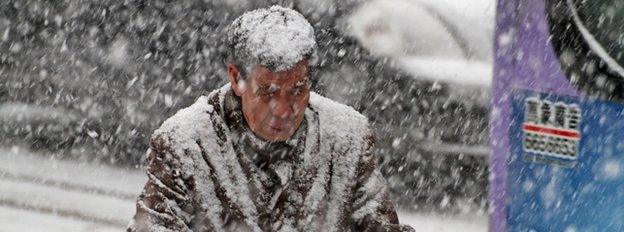
The risks in the cold
Most excess winter deaths and illnesses are not caused by hypothermia or extremes of cold, but by heart and breathing problems. Frail elderly people are particularly at risk.
Cold weather makes your heart work harder to keep your body warm. It increases your heart rate and blood pressure and can cause changes to your blood that increase the risk of developing blood clots that may lead to heart attacks and strokes.
Low temperatures can make it harder to breathe and can make existing chest problems, such as asthma, worse. There is also more flu circulating during the winter.
If you have reduced mobility, are 65 or over, or have a health condition such as heart or lung disease, experts say it is a good idea to heat your home to at least 18C.

A 56-year-old man surnamed Chen was found dead on the street Sunday morning, reported Focus Taiwan, external, but most of the victims in the city and its surrounding region, known as New Taipei City, were found indoors.
Authorities have warned people, especially senior citizens, to keep warm and stay out of the cold.
In South Korea, more than 500 domestic and international flights have been cancelled in Jeju as the island, known for balmy weather and beaches, saw -6C weather. The airport was due to reopen on Monday night.
Thousands of tourists were left stranded over the weekend. Yonhap news agency reported , externalthat local officials were scrambling to find transport and accommodation.
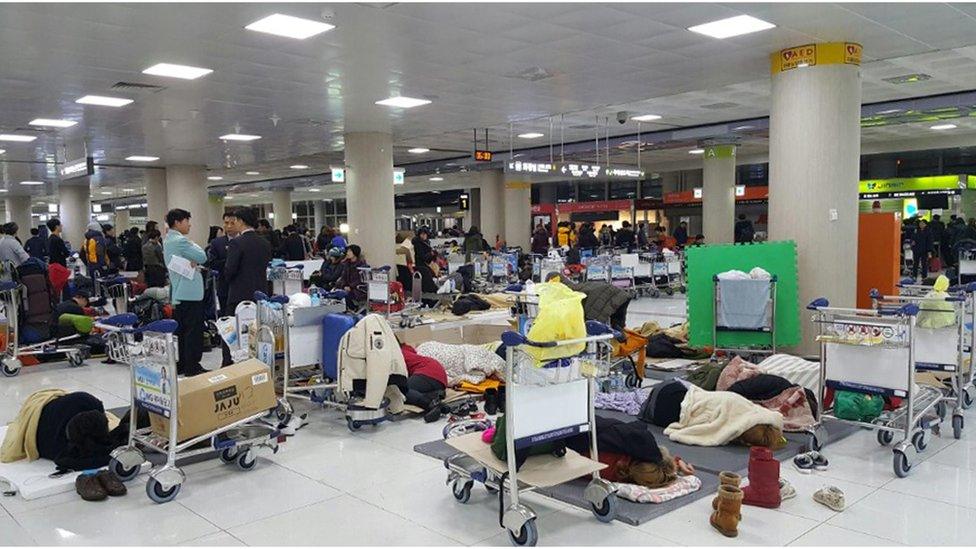
On Monday morning hundreds of passengers were still stranded in Jeju airport
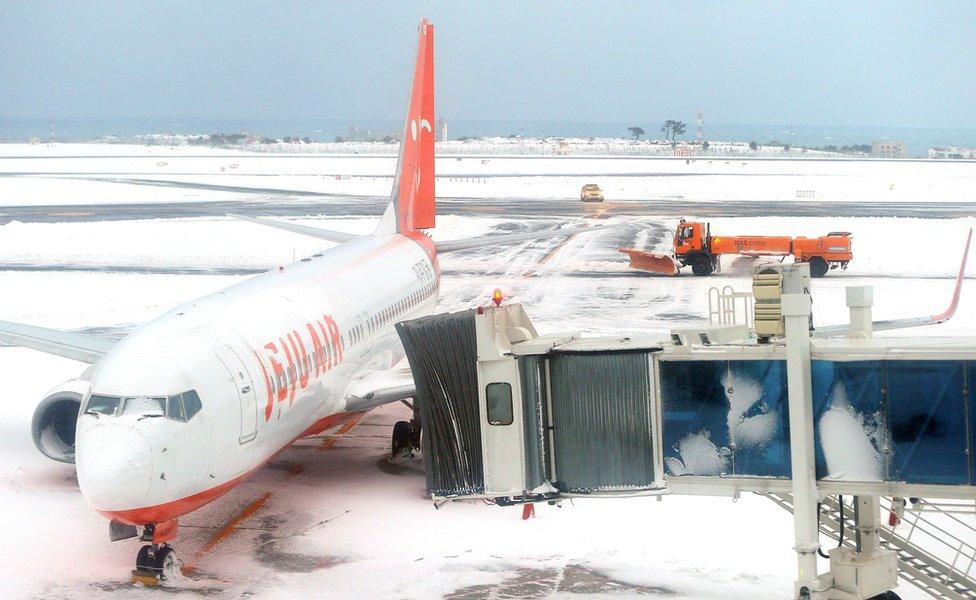
The airport was blanketed in snow over the weekend leading to flight cancellations
In Hong Kong, residents shivered in 3C, the lowest temperature there in nearly 60 years.
Parts of Guangzhou and Shenzhen in southern China have also seen the rare appearance of snow, while the southern Japanese island of Okinawa has seen sleet for the first time ever, report Chinese and Japanese media.
East Asia cold snap: Why is it freezing in the region?
Snowstorms have hit large parts of Japan as well, with more than 600 domestic flights cancelled across the country on Sunday and Monday, reported NHK news. , external
At least five people have died so far and more than 100 have been injured in Japan.
Temperatures have dropped in some parts of South East Asia as well, including Vietnam and Thailand.
In Bangkok, which rarely sees temperatures below 20C, temperatures dropped to around 16C on Sunday, while Vietnam saw the coldest weather in about two decades over the weekend, with Hanoi experiencing 6C.

Are you in East Asia? Have you been affected by the cold weather? You can email haveyoursay@bbc.co.uk, external with your experiences.
Please include a contact number if you are willing to speak to a BBC journalist. You can also contact us in the following ways:
Whatsapp: +44 7525 900971
Send pictures/video to yourpics@bbc.co.uk, external
Tweet: @BBC_HaveYourSay, external
Send an SMS or MMS to 61124 or +44 7624 800 100
- Published24 January 2016
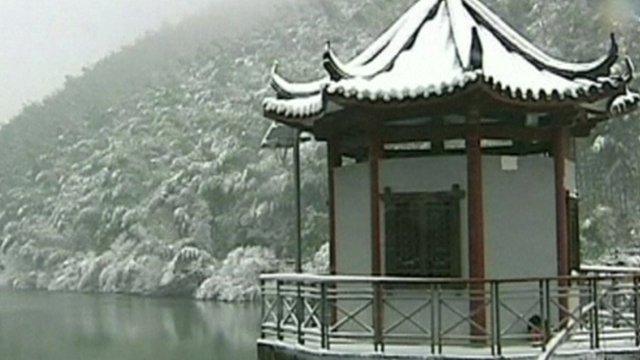
- Published24 January 2016
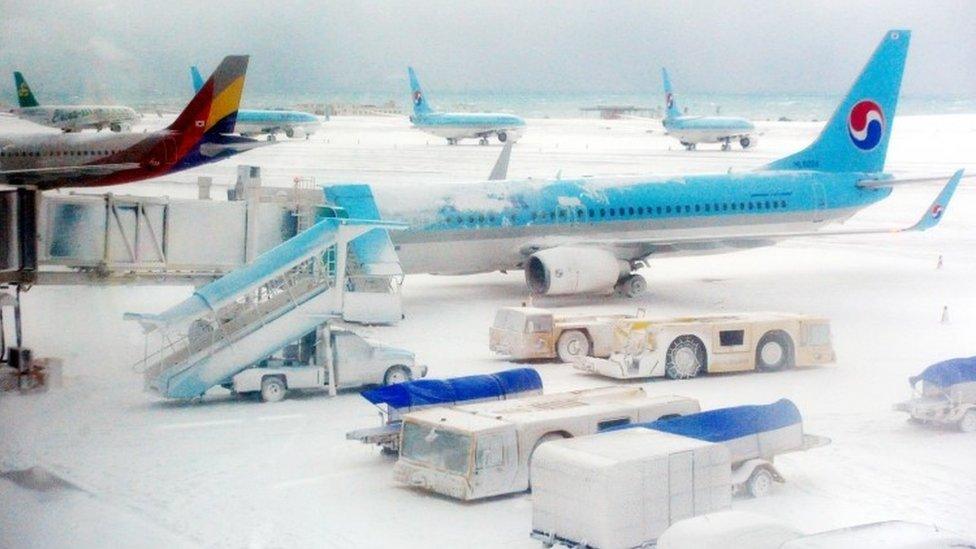
- Published9 February 2017
